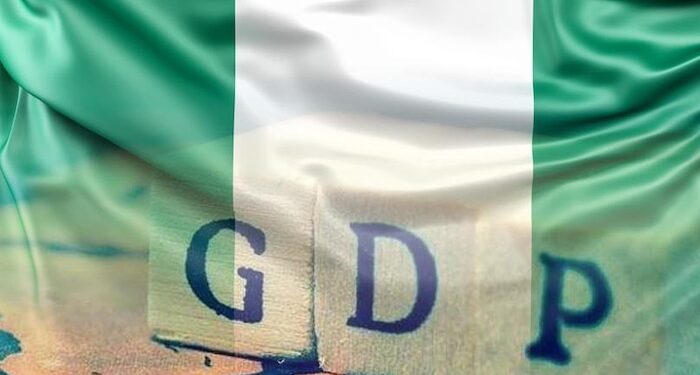Nigeria’s GDP growth rate slowed to 2.98% in real terms in the first quarter of 2024, compared to 3.46% in the preceding quarter, according to the National Bureau of Statistics (NBS). However, this was higher than the 2.31% recorded in Q1 2023.
The Nigerian GDP Report Q1 2024 revealed that the aggregate GDP in nominal terms stood at N58.86 trillion, up from N51.24 trillion in Q1 2023, indicating a year-on-year nominal growth of 14.86%.
Sectoral Contributions to GDP
- Services Sector: This sector drove the growth, recording a 4.32% increase and contributing 58.04% to the aggregate GDP.
- Non-Oil Sector: Contributed 93.62% to growth in real terms, lower than 95.30% in the preceding quarter and 93.79% in Q1 2023. It grew by 2.80% in real terms compared to 0.28% in Q4 2023.
- Oil Sector: Contributed 6.38% to the economy in Q1, up from 4.70% in Q4 2023 and 6.21% in Q1 2023. The real growth of the oil sector was 5.70% year-on-year, a significant increase from -4.21% in the corresponding quarter. However, oil sector growth decreased by 6.41% compared to 12.11% in Q4 2023. Average daily oil production rose to 1.57 million barrels per day (mbpd), compared to 1.55 mbpd in Q4 and 1.51 mbpd in Q1 2023.
- Agriculture: Contributed 21.07% to GDP in real terms in Q1, down from 26.11% in the preceding quarter and 21.66% in Q1 2023.
- Manufacturing: Contributed 9.98% to growth in Q1, lower than 8.23% in Q4 and 10.13% in Q1 2023.
- Trade: Contributed 15.70% to GDP, slightly lower than 15.50% in the preceding quarter and 15.97% in Q1 2023.
- Art, Entertainment and Recreation: Contributed 0.31% to real GDP in Q1, compared to 0.21% in the preceding quarter.
Economic Analysis
Ayokunle Olubunmi, Head of Financial Institutions Ratings at Agusto & Co, remarked that the GDP performance was better than expected given the rate of Naira devaluation during the period. However, he noted that the growth rate was almost on par with the population growth rate, which is insufficient to catalyze the economy effectively. Olubunmi predicted slower growth in Q2 2024 due to the full impact of devaluation and the Central Bank of Nigeria’s (CBN) contractionary policies.
Fiscal and Monetary Policy Impact
The CBN’s recent liquidity mop-up raised an estimated N1.8 trillion from Open Market Operation (OMO) and Nigerian Treasury Bills (NTBs) as investors showed strong demand for long-term government securities. The heightened interest in treasury bills is attributed to an increase in the Monetary Policy Rate (MPR), making government securities more attractive to yield-seeking investors.
- NTB Auction: CBN raised N638.98 billion, with the 364-day bill securing the most interest at a stop rate of 20.69%, suggesting a true yield of about 26.1%.
- OMO Auction: CBN offers worth N500 billion saw a healthy subscription of N1.16 trillion, with stop rates of 19.00%, 19.74%, and 22.49% for 95-day, 179-day, and 361-day tenors respectively.
Analysts at Cordros Research anticipate that yields in the NTB secondary market will likely rise due to tight liquidity conditions in the financial system.
Conclusion
Despite a slight slowdown in GDP growth, the Nigerian economy showed resilience amidst challenging conditions, particularly in the services and oil sectors. However, to achieve significant economic growth, structural issues such as insecurity and infrastructure, particularly in power, need to be addressed. Additionally, fiscal policies need to complement monetary policies to boost economic activities and support sustainable growth.


